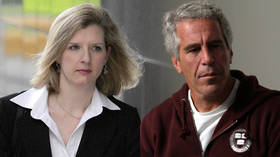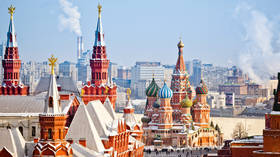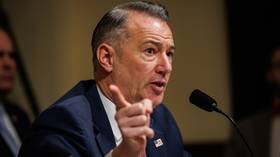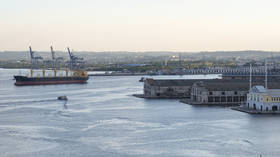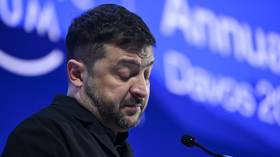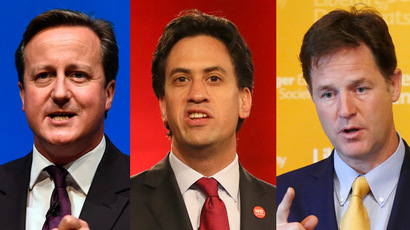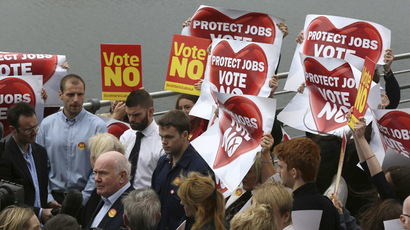‘What’s left is us’: Final-day push before historic Scottish independence vote
Campaigners on both sides of Scotland's independence referendum are trying to sway over 4 million registered voters in a last-day push before the historic vote gets underway.
Voters in Scotland will head to polls on Thursday to decide whether they want to stay in the 307-year-union with the rest of the UK or become independent.
Turnout is expected to be massive, with 4,285,323 people having registered to vote by the September 2 deadline. With 2012 Scottish government figures estimating 4,410,288 people aged 16 and over reside in Scotland, up to 97 percent of eligible voters could turn out to cast their ballots.
Three new polls, one by Opinium for the Daily Telegraph, another by ICM for the Scotsman, and a third by Survation for the Daily Mail, were published on Tuesday evening. With undecided voters excluded, they all suggested a lead for ‘No’ of 52 percent to 48 percent in favor of independence.
Alistair Darling, the head of the ‘No’ campaign, told the BBC that Scots should have “no doubt you can have stronger powers to raise the money you need and it doesn’t matter what’s happening in the rest of the UK.”
“I think people are clear that the three non-nationalist parties are promising more powers in relation to tax and in relation to welfare on top of more powers that have already been promised,” he said. “I believe you can get a better, stronger Scotland within the UK. We’ve all built the UK together and benefited from pooling resources in good times and bad.”
Alex Salmond, the head of the ‘Yes’ campaign, told the BBC. “The central mistake that the ‘No’ campaign has made is to tell the people of Scotland that the land of Adam Smith is not capable of running its own matter financially.”
He dismissed the new deal offered by Westminster to grant Scotland greater powers as “the same package that was offered last spring and was repacked in desperation.”
On the final day of campaigning, in a letter to the people of Scotland, Salmond wrote, "The talking is nearly done. The campaigns will have had their say. What's left is just us - the people who live and work here. The only people with a vote. The people who matter.”
A letter to the people of Scotland. "Let's do this" http://t.co/7LYXwgXUoZ
— Alex Salmond (@AlexSalmond) September 17, 2014
Better Together leader Alistair Darling and former Prime Minister Gordon Brown will lead a ‘Love Scotland, Vote No’ rally in Glasgow on the eve of the vote.
Darling said, "I'm not going. This is my country. I'm staying." He told the Today program that he thought there would be a ‘No’ vote, but even if people were to vote for independence, he would do "the best I possibly can" for Scotland.
Darling also warned that, whichever way the vote went, there would be hard work healing divisions in Scottish society which had emerged during the campaign.
About 1,500 independence supporters bearing Saltire flags, badges and blue campaign T-shirts gathered for a rally in Glasgow on Tuesday evening.
Meanwhile, 14 former British armed forces chiefs warned in an open letter in the Sun that “a vote for separation would undermine both Scotland and the rest of the United Kingdom’s defense.”
“At risk is the most successful alliance in history and one which has seen men and women from all parts of the country play their part in securing the liberties we now enjoy,” the letter stated.
Indeed, fundamental issues will be on the negotiation table if Scotland votes for independence, such as currency union, EU membership, immigration, healthcare and what share of the UK’s national debt Scotland would take.
Meanwhile, UK Prime Minister David Cameron has admitted he is "nervous" ahead of the Scots going to the polls, but said he is confident they will vote against a split.
"Well of course everyone who cares about our United Kingdom - and I care passionately about our United Kingdom - is nervous," he said to reporters during a visit to Fleet, Hampshire.
On Thursday, Scotland votes - and the future of the UK is at stake. Please help keep our family of nations together: https://t.co/j0JkdjiK7f
— David Cameron (@David_Cameron) September 15, 2014
Cameron also emphasized that he will not stand down if Scotland votes for independence.
"My name is not on the ballot paper,” he said. “What's on the ballot paper is 'Does Scotland want to stay in the United Kingdom, or does Scotland want to separate itself from the United Kingdom?
"That's the only question that will be decided on Thursday night. The question about my future will be decided at the British general election coming soon."




